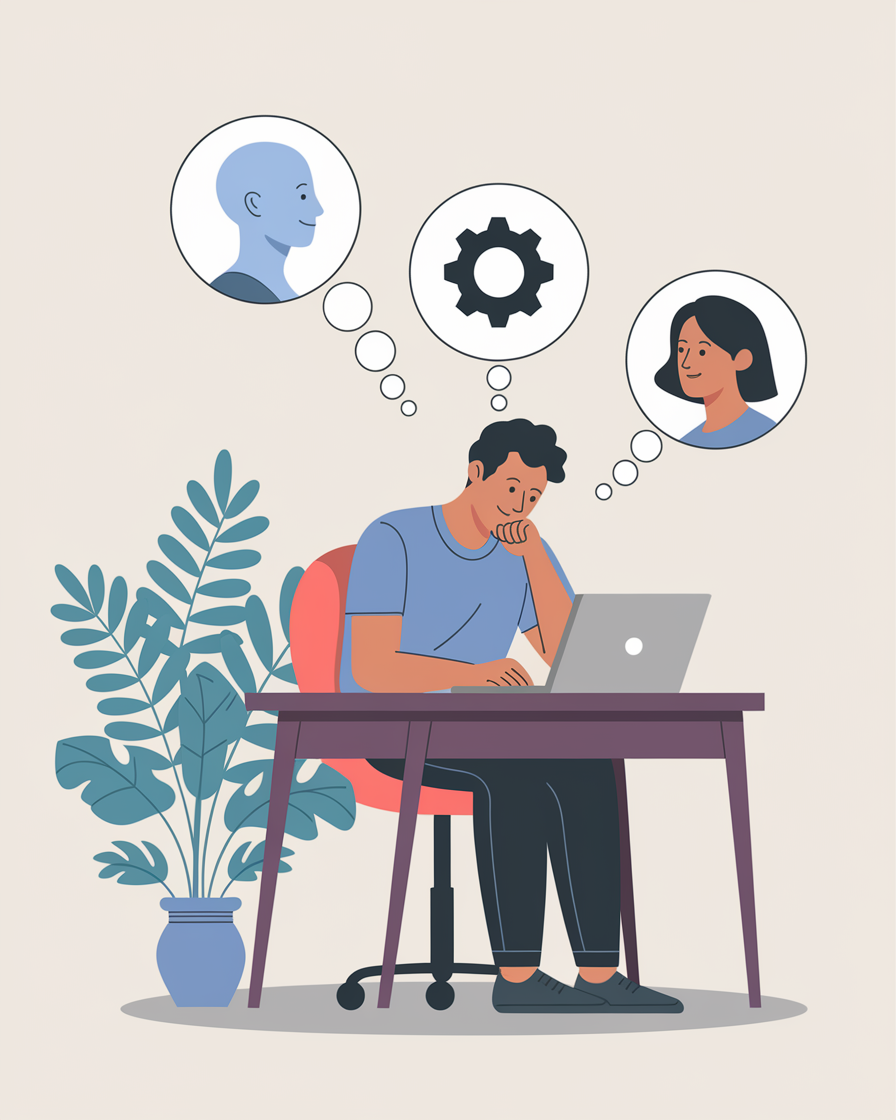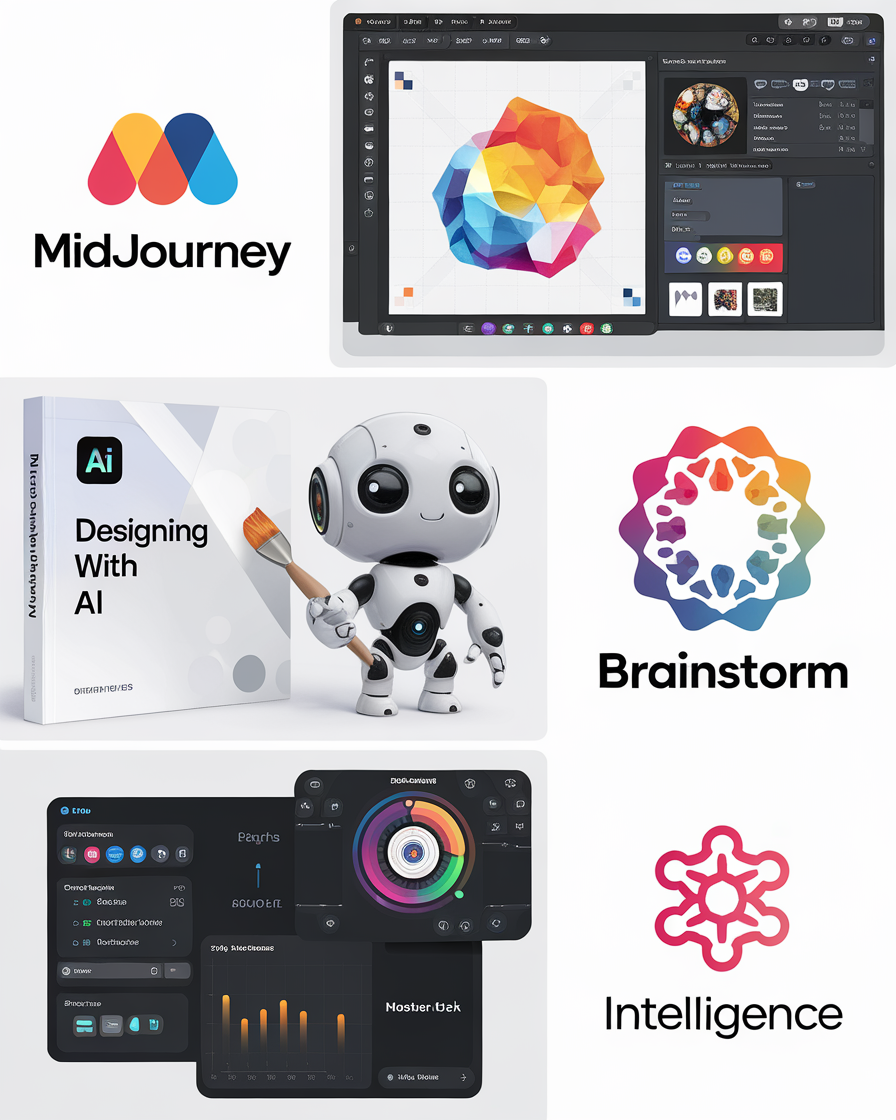Unlock your potential! Discover how AI and confidence building tools can transform your self-perception. Start your personal growth journey today.
Introduction
In an increasingly digitized world, the quest for personal growth and improved well-being often leads us down new technological avenues. One such avenue, burgeoning with potential, is the integration of Artificial Intelligence (AI) into our self-improvement journeys. It might sound like something out of a science fiction novel, but the reality is that AI is already playing a significant role in various aspects of our lives, from personalized recommendations to advanced medical diagnostics. But can AI truly help us with something as intrinsically human as building confidence and self-esteem? The answer, surprisingly, is a resounding yes.
The Rise of Personalized AI Coaching for Self-Improvement
The concept of “one-size-fits-all” rarely applies to personal development. What works for one person may not resonate with another, especially when it comes to something as nuanced as building confidence. This is where AI truly shines. Traditional coaching or therapy, while invaluable, can be expensive and may not always be available precisely when needed. AI-powered platforms, on the other hand, offer highly personalized experiences, adapting to individual needs, progress, and even emotional states.
These AI self-esteem tools can leverage sophisticated algorithms to analyze user input – be it text, voice, or even biometric data (with appropriate consent and privacy safeguards) – to provide tailored feedback and exercises. For instance, an AI coach can identify patterns in your language that indicate self-doubt and then suggest specific affirmations or cognitive reframing techniques.
Consider the emergence of AI in various personal development niches:
- Communication Training: Tools like Poised and Orai use AI to analyze your speech patterns, filler words, pace, and even confidence levels during virtual meetings or practice sessions. They offer real-time feedback, helping you refine your public speaking skills and sound more assured.
- Mental Well-being Apps: Many meditation and mindfulness apps, such as Aura, incorporate AI to personalize guided meditations and breathing exercises based on your reported mood or stress levels. While not directly aimed at confidence, improved mental well-being is a fundamental stepping stone to higher self-esteem.
- Career Development Platforms: Platforms like Grow with Google’s Career Dreamer utilize AI to help individuals identify transferable skills, explore new career paths, and craft compelling resumes and cover letters, thereby boosting career confidence.
The benefit of this personalization is profound: it creates a learning environment that feels genuinely responsive and supportive, fostering a sense of progress that is crucial for sustained confidence building.
How AI Fosters Cognitive & Behavioral Shifts
At the heart of building confidence and self-esteem lies the ability to identify and challenge negative thought patterns and behaviors. This is where AI’s capabilities in data analysis and pattern recognition become incredibly powerful, particularly when integrated with principles of Cognitive Behavioral Therapy (CBT).
CBT is a widely recognized therapeutic approach that helps individuals understand the connection between their thoughts, feelings, and behaviors. AI can act as a highly efficient, always-available assistant in applying CBT principles.
- Identifying Negative Self-Talk: Many AI chatbots and journaling apps can analyze your written entries for recurring negative phrases or self-deprecating language. By highlighting these patterns, the AI can make you more aware of your internal critic and suggest alternative, more positive affirmations. For example, if you frequently write phrases like “I always mess things up,” the AI might prompt you to reframe this thought to “I am learning and growing from my experiences.”
- Challenging Limiting Beliefs: AI tools can be programmed to ask probing questions that encourage you to examine the evidence for your limiting beliefs. Imagine an AI chatbot prompting you with questions like, “What specific evidence do you have to support the idea that you’re not good enough?” or “Can you think of a time when you succeeded despite initial doubts?” This structured questioning can help dismantle irrational fears and self-imposed limitations. You can even prompt tools like ChatGPT to act as a confidence coach, guiding you through these exercises. For more on this, check out this article on prompting ChatGPT to be your confidence coach.
- Behavioral Activation: For those struggling with low motivation or a tendency to avoid challenges, AI can help with behavioral activation. This involves setting small, achievable goals and celebrating successes. An AI tool could help you break down a daunting task into smaller steps, track your progress, and offer encouraging messages as you complete each stage. This consistent positive reinforcement is vital for building momentum and a sense of accomplishment.
Furthermore, AI can facilitate exposure therapy in a safe, controlled environment. For instance, Virtual Reality (VR) therapy, often powered by AI, can simulate social situations for individuals with social anxiety, allowing them to practice interactions and gradually build confidence without the overwhelming pressure of real-world consequences. Studies have shown the effectiveness of VR in helping individuals overcome social anxiety and boost their confidence in social settings. You can read more about this on XRHealth’s blog about overcoming social anxiety with VR.
Practical Tips for Boosting Confidence with AI





Ready to explore how AI can become your partner in personal growth? Here are some practical ways to leverage AI for personal growth and boost confidence with AI:
- Utilize AI-Powered Journaling Apps: Many journaling apps now incorporate AI features that can analyze your entries for emotional patterns, identify cognitive distortions, and offer prompts for reflection. Regularly engaging with these apps can help you gain insights into your thought processes and challenge negative self-talk.
- Engage with AI Coaching Platforms: Explore platforms designed specifically for personal coaching or skill development. These often provide structured modules, exercises, and personalized feedback to help you target specific areas of improvement, such as communication, assertiveness, or decision-making. Look for platforms that offer a trial period to see if their approach resonates with you.
- Practice Public Speaking with AI Trainers: If public speaking is a source of anxiety, AI-powered communication coaches like Orai or Yoodli can be game-changers. They provide real-time feedback on your pace, clarity, filler words, and even eye contact (via webcam), allowing you to practice and refine your delivery in a private, low-stakes environment.
- Leverage AI for Skill Acquisition: Learning new skills is a fantastic way to boost confidence. AI-driven personalized learning platforms can tailor educational content to your specific learning style and pace, making it easier to master new subjects or abilities. This personalized approach fosters a sense of achievement and competence.
- Explore AI-Enhanced Meditation and Mindfulness Apps: While not directly for confidence, apps that use AI to personalize meditation sessions (like Aura) can significantly reduce stress and improve self-awareness, which are crucial foundations for building self-esteem. A calmer, more present mind is better equipped to tackle challenges and embrace growth.
- Use AI for Career Exploration and Development: Tools like Career Dreamer by Grow with Google can help you articulate your existing skills and explore new career possibilities. This can be particularly empowering if you’re feeling stuck or unsure about your professional path, providing a clearer vision and the confidence to pursue new opportunities.
- Engage with AI Chatbots for Reflective Conversations: While AI chatbots are not substitutes for human therapists, they can offer a safe and non-judgmental space for self-reflection. You can use them to brainstorm solutions to challenges, practice difficult conversations, or simply articulate your thoughts and feelings without fear of judgment. This can help process emotions and gain clarity, leading to a stronger sense of self.
FAQ Section
Q1: Is AI a replacement for human therapy or coaching for confidence building? A1: No, AI is not a replacement for human therapy or coaching. While AI tools can provide valuable support, personalized exercises, and insights, they lack the nuanced emotional intelligence, empathy, and comprehensive understanding that a human therapist or coach offers. AI should be viewed as a supplementary tool to enhance personal growth journeys, not to replace professional human guidance when needed. For complex mental health concerns, always consult with a qualified human professional.
Q2: What are the privacy concerns when using AI self-esteem tools? A2: Privacy is a significant concern when using any AI tool, especially those dealing with personal development and sensitive data. Users should be mindful of the data they share and always review the privacy policies of any AI application they use. Look for tools that emphasize data encryption, anonymization, and clear policies on how your data is used and stored. Be cautious about sharing highly sensitive personal information. Ethical AI development prioritizes user privacy and data security.
Q3: How do AI tools personalize the confidence-building process? A3: AI tools personalize the confidence-building process by analyzing user data, such as text input (journal entries, chat conversations), voice patterns, and even behavioral responses to exercises. Based on this analysis, AI algorithms can identify individual strengths, weaknesses, limiting beliefs, and emotional states. They then tailor recommendations, provide customized feedback, adapt exercises to the user’s pace, and suggest specific strategies that are most likely to be effective for that individual’s unique needs and goals.
Q4: Can AI help with social confidence or anxiety? A4: Yes, AI can be particularly helpful for social confidence and anxiety. AI-powered virtual reality (VR) therapy, for instance, allows individuals to practice social interactions in simulated, safe environments, gradually desensitizing them to social fears. AI communication coaches can provide real-time feedback on aspects like tone, pace, and body language during practice conversations, helping users refine their social skills. AI chatbots can also offer a judgment-free space to practice conversations or brainstorm responses to social situations.
Q5: Are there any limitations to using AI for personal growth? A5: Yes, there are limitations. AI lacks genuine human intuition, empathy, and the ability to understand complex emotional nuances or non-verbal cues in the same way a human does. It cannot provide the depth of connection, accountability, or real-time situational awareness that a human therapist or coach can. Additionally, AI systems are only as good as the data they are trained on, meaning they can perpetuate biases present in that data. Over-reliance on AI without human interaction can also potentially lead to social isolation for some individuals. It’s crucial to balance AI support with real-world human connections and experiences.
Conclusion
The journey to building confidence and enhancing self-esteem is a deeply personal one, often requiring introspection, persistence, and a willingness to step outside one’s comfort zone. While the human element of support and understanding remains irreplaceable, AI has emerged as a surprisingly powerful and accessible ally in this endeavor. From personalized coaching and cognitive restructuring to skill development and anxiety management, AI and confidence building tools offer innovative ways to accelerate personal growth.
For More Information You can Read Our Latest Posts Here https://riseviaai.com/blog/




I got what you mean ,saved to favorites, very decent web site.
Thanks for this glorious article. One more thing to mention is that nearly all digital cameras can come equipped with some sort of zoom lens so that more or less of your scene to become included through ‘zooming’ in and out. These changes in target length tend to be reflected from the viewfinder and on substantial display screen at the back of your camera.
I have seen that charges for internet degree experts tend to be a terrific value. Like a full Bachelor’s Degree in Communication with the University of Phoenix Online consists of 60 credits with $515/credit or $30,900. Also American Intercontinental University Online provides a Bachelors of Business Administration with a full education course element of 180 units and a cost of $30,560. Online learning has made having your education far less difficult because you can easily earn your current degree from the comfort of your house and when you finish working. Thanks for all the other tips I have certainly learned through the blog.
As I site possessor I believe the content matter here is rattling wonderful , appreciate it for your hard work. You should keep it up forever! Best of luck.